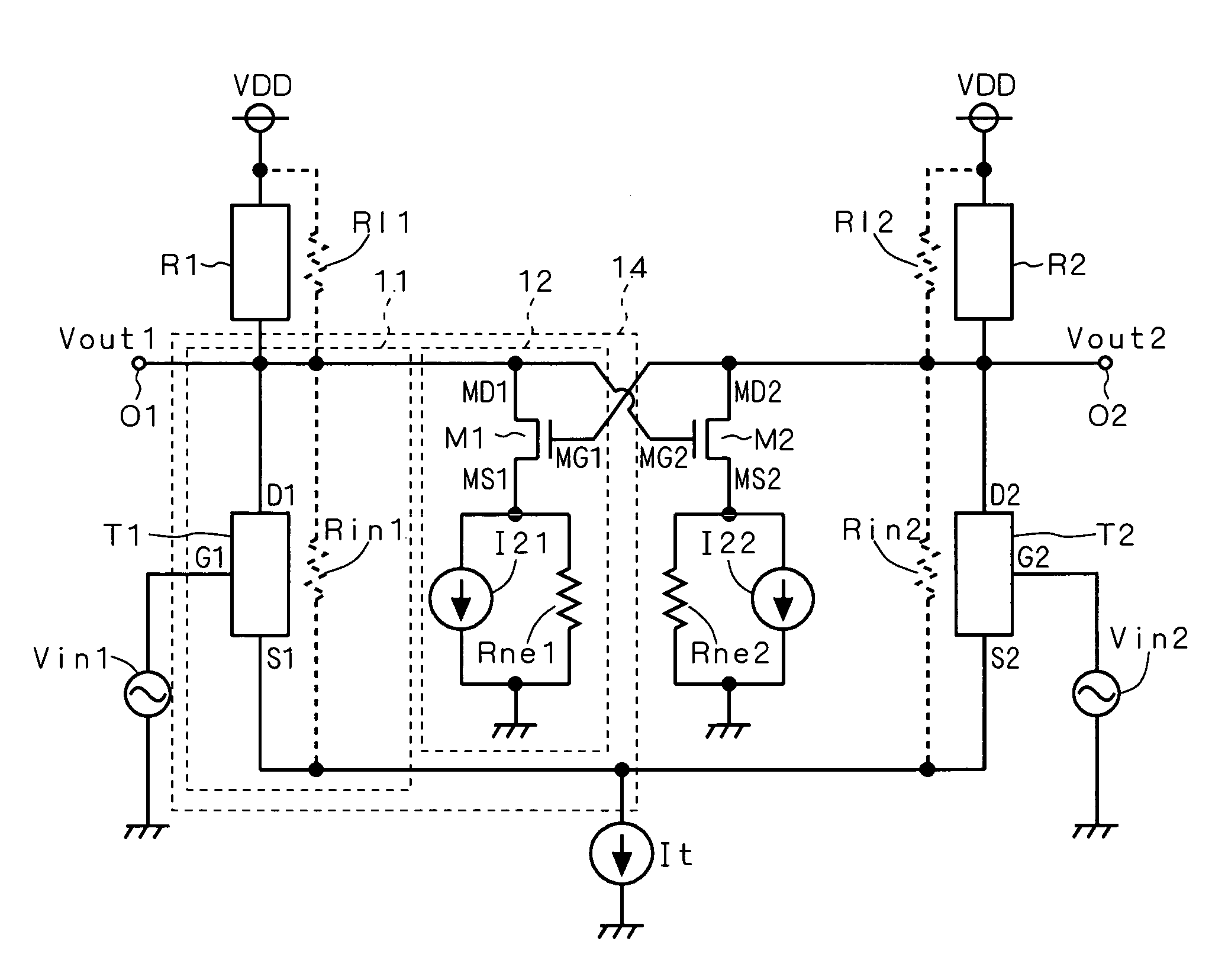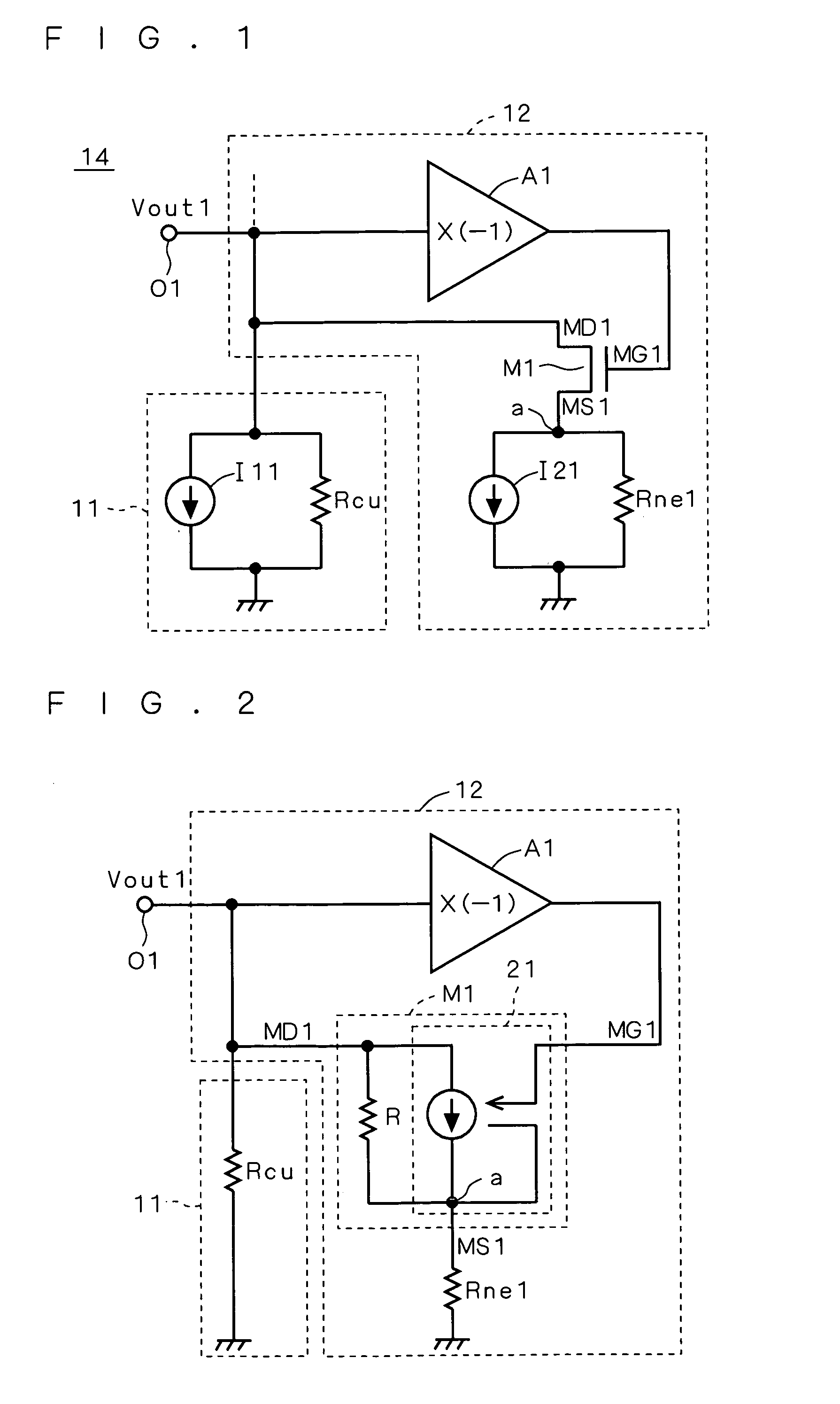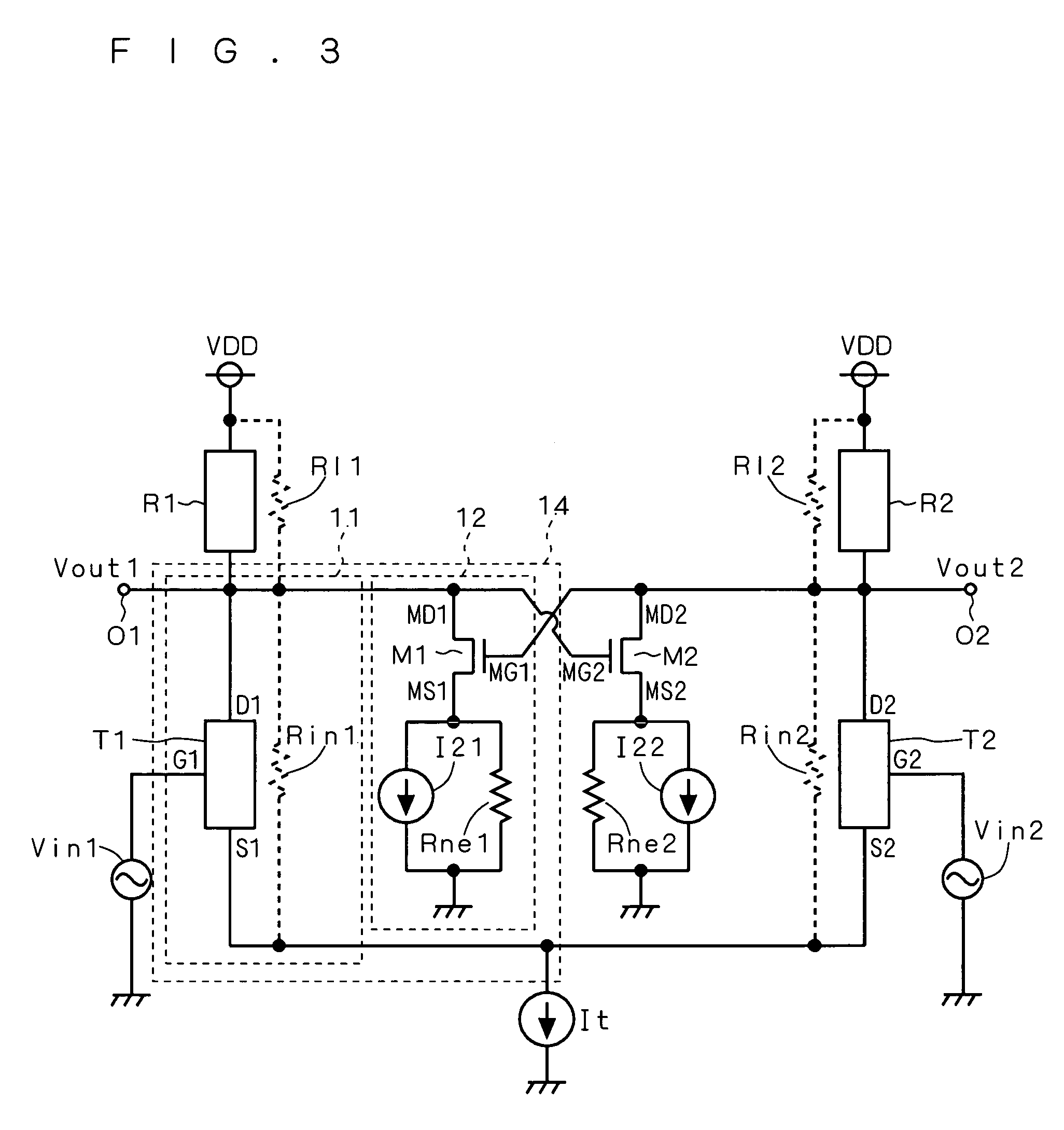Current source circuit and differential amplifier
a current source circuit and amplifier technology, applied in the direction of differential amplifiers, amplifiers with semiconductor devices/discharge tubes, amplifiers with semiconductor devices only, etc., can solve the problems of difficult to increase reduce the gain of the differential amplifier, etc., and achieve easy supply of current sources and high output resistance
- Summary
- Abstract
- Description
- Claims
- Application Information
AI Technical Summary
Benefits of technology
Problems solved by technology
Method used
Image
Examples
first preferred embodiment
[0024]FIG. 1 is a circuit diagram showing the configuration of a current source circuit 14 according to a first preferred embodiment of the present invention. The current source circuit 14 has a parallel connection of a current source block (current source) 11 and a negative resistance generation block 12.
[0025]The negative resistance generation block 12 is configured as follows. The input of an amplifier A1 (inverting amplifier) providing a voltage gain of −1 is connected to an output terminal O1 (first differential output terminal). The output of the amplifier A1 is connected to a voltage-controlled terminal MG1 of an MOS transistor (voltage-controlled current source) M1. The MOS transistor M1 has a terminal MD1 (current input terminal) connected to the output terminal O1, and a terminal MS1 (current output terminal) connected at a node a to one end of a resistor (internal resistor) Rne1 (in the following, the resistance of the resistor Rne1 will also be identified as Rne1). Anoth...
second preferred embodiment
[0038]FIG. 3 is a circuit diagram showing the configuration of a differential amplifier according to a second preferred embodiment of the present invention. The differential amplifier of the second preferred embodiment employs the current source circuit 14 of the first preferred embodiment. In FIG. 3, respective resistors R11 and R12 of loads R1 and R2, and respective resistors Rin1 and Rin2 of voltage-controlled current sources T1 and T2 are represented by dotted lines. In the following, the respective resistances of the resistors R11, R12, Rin1 and Rin2 will be identified by the same reference numerals.
[0039]The load R1 has one end connected to a power source voltage VDD, and another end connected to the output terminal (first differential output terminal) O1. The voltage-controlled current source T1 has a terminal D1 connected to the output terminal O1, and a terminal S1 connected to one end of a constant current source It. Another end of the constant current source It is grounde...
third preferred embodiment
[0052]FIG. 5 is a circuit diagram showing the configuration of a differential amplifier according to a third preferred embodiment of the present invention. In the third preferred embodiment, the differential amplifier of the second preferred embodiment is more specifically configured using MOS transistors.
[0053]A PMOS transistor Mp1 has a source connected to the power source voltage VDD. The substrate terminal of the PMOS transistor Mp1 is also connected to the power source voltage VDD. The PMOS transistor Mp1 has a drain connected to the output terminal O1. An NMOS transistor Mn1 has a drain connected to the output terminal O1, a source connected to one end of the constant current source It, and a substrate terminal connected to the source.
[0054]Another end of the constant current source It is grounded. The gate of the NMOS transistor Mn1 is connected to one end of the voltage source Vin1. Another end of the voltage source Vin1 is grounded.
[0055]An NMOS transistor Mn3 has a drain c...
PUM
 Login to View More
Login to View More Abstract
Description
Claims
Application Information
 Login to View More
Login to View More - R&D
- Intellectual Property
- Life Sciences
- Materials
- Tech Scout
- Unparalleled Data Quality
- Higher Quality Content
- 60% Fewer Hallucinations
Browse by: Latest US Patents, China's latest patents, Technical Efficacy Thesaurus, Application Domain, Technology Topic, Popular Technical Reports.
© 2025 PatSnap. All rights reserved.Legal|Privacy policy|Modern Slavery Act Transparency Statement|Sitemap|About US| Contact US: help@patsnap.com



